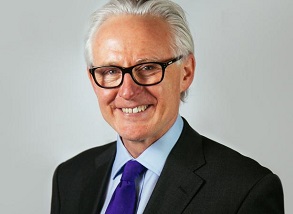MPs call for cross-party commission on health and care

The group – made up of 98 MPs, including 21 select committee chairs and 30 former ministers – said the commission would take an impartial, independent approach to an issue of national importance. It could help break the political deadlock ‘that has prevented a realistic approach to increasing resources both to address the current situation and to take a long-term view of future funding’, they said.
The HFMA is currently examining the future of NHS funding, as part of its NHS at 100 programme.
The MPs said the commission could look at current demand and funding and take a long-term view, including how to increase prevention, which would improve wellbeing and reduce costs.
In particular, it could investigate and make recommendations on:
- The likely scale of demand up to 2034, taking account of productivity and quality improvements and the impact of health prevention work
- Opportunities for improving productivity and quality and the advantages of a single budget for health and social care
- The net cost to the taxpayer
- Funding options, including a hypothecated tax, and spreading the cost fairly across the generations and income levels
They added the commission should take account of the social care green paper, due this summer, and engage the public in a national debate to help build consensus on a long-term settlement for health and care.
While there is growing support for a cross-party review of health and social care, many had suggested a royal commission. However, some critics have said such a commission would take too long to report. The new group of MPs said a Parliamentary commission – effectively a joint committee of both Houses – would report more swiftly. The group proposed it should report by Easter next year.
Norman Lamb (pictured), a Liberal Democrat, former care and support minister and chair of the Science and Technology Committee, said politicians and the public would not tolerate the steady deterioration of the NHS and social care.
‘We need a fundamental review of health and care funding in order to safeguard the quality of these services in the longer term and to finally deliver equal access to treatment for those who suffer from mental ill-health. This will inevitably involve difficult choices, which no political party has been prepared to make,’ he added.
Commons Health and Social Care Committee chair Sarah Wollaston – a Conservative MP – said: ‘We believe this is the best way to examine what funding is needed both now and into the long term and to seek a consensus on the options for sharing the costs. This year we mark the 70th anniversary of our NHS and we believe that the public want their vital health and care services to be given the funding needed to meet rising demand.’
Former shadow minister for care and older people Liz Kendall (Labour), added: ‘The public knows we will have to pay more for the NHS and social care, and the strength of feeling in the country is reflected by the breadth of commitment to tackling this issue in Parliament. The prime minister should seize this opportunity, have the courage to set up a Parliamentary commission, and provide the leadership our care services desperately need.’
While the MPs suggested the commission should look into a hypothecated health and care tax, respected health economist John Appleby has described such a levy as ‘an illusory technical escape’ from the hard truth of spending choices.
In a blog, Professor Appleby, Nuffield Trust chief economist and research director, said that NHS spending would fall by around 0.5 percentage points of GDP by 2021 under current plans. But if the tax take fell, so too would funding. Instead, the country should first decide how much it wanted to spend and then how tax should be raised in a fair and efficient way to fund this agreed spending, he argued.
Related content
This event is for those that will benefit from an overview of costing in the NHS or those new to costing and will cover why we cost and the processes.
Mindset and the neuroscience of leadership - Lunch and Learn